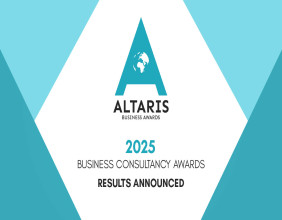Summary
- Online trading app, Robinhood, is facing many severe complaints and charges.
- It has been accused of selling the trades of novice users through the backdoor.
- The critics say it preys on its users by attracting them through an extremely gamified interface.
The year 2020 had been extraordinary for Robinhood, an online trading app that attracts the young and mostly first-time investors to its commission-free platform. It is especially designed to tempt the new video game-loving generation.

Image source: Shutterstock
The company's client base exploded in the previous year due to the enormous financial uncertainty throughout the world. Unemployment increased, the market turned crazy with colossal volatility, and youngsters had more time in hand due to lockdown restrictions. Robinhood's concept of making trading accessible and easy for everyone clicked during these circumstances.
Must read: The rise of Robinhood in 2020 amid controversies
Robinhood hit by lawsuits and allegations
However, Robinhood’s days of glory have been blighted by a spate of allegations hurled from all sides. The US consumer protection act received about 400 complaints in the beginning of 2020 against Robinhood, which is about 4 times than its competitors.
Though the app’s name is derived from a fictional character of Robinhood, who was famous for taking from the rich and giving it to the poor. However, the charges alleged against the company are telling a story that is quiet in contrast to that of its fictional namesake.
A lawsuit filed on 24 December 2020 claims that while the company is pretending to democratise finance with zero commission, it earns a profit by selling its customers trades through the backdoor. On 17 December 2020, the company had to pay USD 65 million to the Securities and Exchange Commission (SEC) on charges of misleading customers. It had not clearly revealed its revenue sources to the clients, costing a lot to the beginners.
Must read: Robinhood Again Accused of Violating Securities Laws, this Time for Downplaying Risk
Additionally, Massachusetts regulators have made the most scathing allegation on the app, accusing it of systematically preying on the clients. The regulators claim that the gamified interface hooks the young investors and encourages them for risky and advanced derivatives trading, option calls and short sales. Such practices could be extremely risky for millennial users, especially when the company has a track record of not being too transparent. Also, the gamifying investing by the inexperienced investors have ended them into huge financial problems as they are trying hard to understand the reasons behind losing money on stock options.
IPO plans in hot water
The company has long been interested in going public, but it is having a tough time facing lawsuits and complaints. The future of its IPO is not clear as the fintech startup, which was founded by two Stanford University graduates, is mired in a sea of complaints.
The company has millions of young users. These users have recently suffered hugely as hackers gained access to nearly 2000 accounts and held about 10K accounts as hostage. The losses were also due to the volatility around the US presidential election. The critics allege that gamified trading had turned extremely risky for inexperienced users. This issue came to light more evidently when a novice option trader killed himself after suffering huge portfolio loss.
What do we expect about Robinhood future and what’s in store for its IPO plans? The answers to these are still not clear, though the market experts are keeping a close watch on the company. But for now, the company has found itself in hot water and to come out of these troubles, it should have more transparency with the users.
Do check: Robinhood Rally Under the Spotlight; All that You Need to Know!
.jpg)



